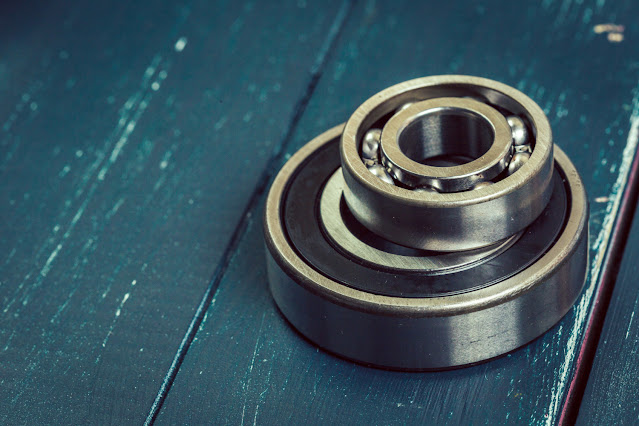BEARING 7204 NTN
The Best Industrial Bearing Supplier
bearings are critical components in many industrial applications and can be found in a variety of devices from cars to elevators. When choosing the right bearings for your application, it is important to consider a few factors, such as type of bearing, size, and speed. In this article, we will take a look at the best industrial bearing supplier and help you make an informed decision when buying industrial bearings.
What are Industrial Bearings?
Industrial bearings are used in a variety of industries including automotive, aerospace, and manufacturing. Since industrial bearings operate under high loads and temperatures, they must be able to handle a lot of abuse. Industrial bearings are usually made from a durable material such as steel or ceramic, and they often come with a warranty.
If you're in need of industrial bearings for your next project, be sure to check out our selection at Bearing Solutions. We offer a wide range of bearings that are perfect for your specific application. Plus, our warranty means that you can always count on us to provide quality products.
The Five Types of Bearings
The Industrial Bearing Industry is a huge one, encompassing a variety of different applications and products. The five main types of bearings are journal, ball, cylindrical roller, spider, and V-bore.
Journal Bearings: These bearings are the simplest type and are made up of a journal or shaft with balls or races attached. They are used in applications where high speeds and minimal weight are required, such as in mills and factories.
Ball Bearings: Ball bearings are similar to journal bearings in that they use a journal or shaft with balls attached, but they also feature an outer ring that helps to reduce friction. They are most commonly used in applications that require high speeds and minimum weight, such as in car engines and turbines.
Cylindrical Roller Bearings: Cylindrical roller bearings are similar to ball bearings in that they use a journal or shaft with balls attached, but they feature a cylindrical roller instead of a ball. This allows them to better absorb shock and resist wear. They are most commonly used in applications that require high loads and smooth motion, such as in fans and pumps.
Spider Bearings: Spider bearings are similar to ball bearings in that they use a journal or shaft with balls attached, but they also feature a spider or porous sleeve. This allows the bearings to better absorb shock and resist wear. They are most commonly used in applications that require high loads and smooth motion, such as in fans and pumps.
V-Bore Bearings: V-bore bearings are similar to cylindrical roller bearings in that they use a journal or shaft with balls attached, but they also feature a V-shaped bore. This allows them to better distribute weight and resist wear. They are most commonly used in applications that require high loads and smooth motion, such as in fans and pumps.
The Benefits of Industrial Bearings
Industrial bearings have been in use for over a hundred years, and their popularity is only growing. In this article, we will explore the benefits of industrial bearings and why they are so popular.
First and foremost, industrial bearings are reliable. This is because they are designed to operate under high loads and temperatures. Moreover, industrial bearings often have a longer lifespan than standard bearings. This is because they are designed to last through repeated uses.
Finally, industrial bearings are often easier to maintain. This is because they require less maintenance than standard bearings. For example, standard bearings need to be lubricated every time they are used, while industrial bearings typically require no lubrication at all.
The Different Types of Bearings
The bearing industry can be a complex one, with different types of bearings available to meet the needs of a variety of customers. This article will introduce you to the most common types of bearings and some of the benefits they offer.
The Different Suppliers for Industrial Bearings
There are a variety of industrial bearings suppliers available on the market. Choosing the best one for your specific needs can be difficult. In this blog, we will discuss some of the key factors to consider when choosing an industrial bearing supplier.
1. Size and Capacity
Bearings come in different sizes and capacities. The size of the bearing will determine its weight and how much space it will take up in a machine. Bearings with larger capacities are typically used in larger machines, while bearings with smaller capacities are more commonly used in smaller machines. It is important to choose a bearing that is compatible with the size and capacity of your machine.
2. Performance and Durability
Bearings play an important role in the performance of machines. It is important to choose a supplier that offers high-quality bearings that will last long. Bearings that have been tested and proven to be durable will withstand repeated use and abuse.
3. Price and Quality
Another important factor to consider when choosing an industrial bearing supplier is price and quality. It is important to find a supplier that offers good quality at a low price. Bearings that are of poor quality will not last long, and they will also be expensive to replace.
Conclusion
Bearing suppliers are a key part of any manufacturing operation. Ensuring that the correct bearing is in place at all times can help minimize downtime, improve efficiency, and keep your company running smoothly. When looking for an industrial bearing supplier, it is important to consider both the quality of the bearings offered as well as the vendor’s reputation. I hope this article has helped you find the best supplier for your needs!








